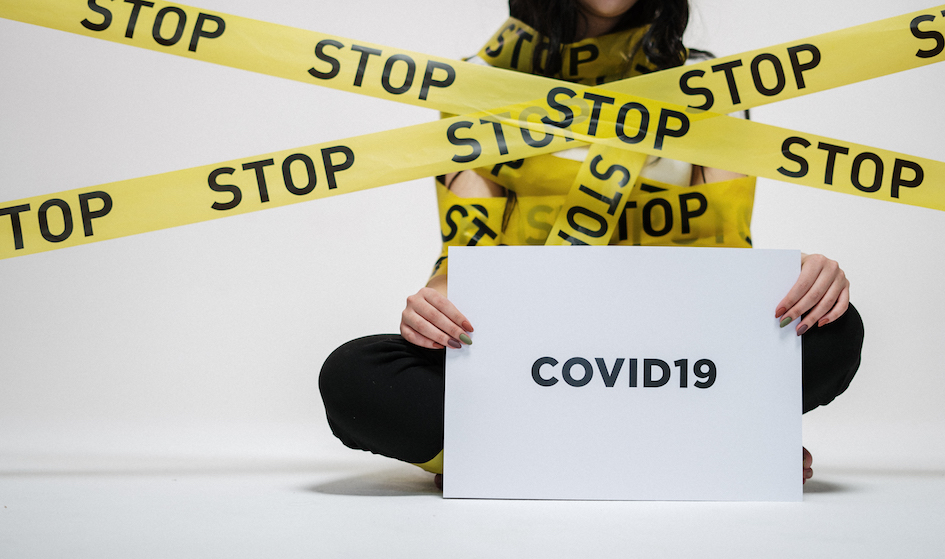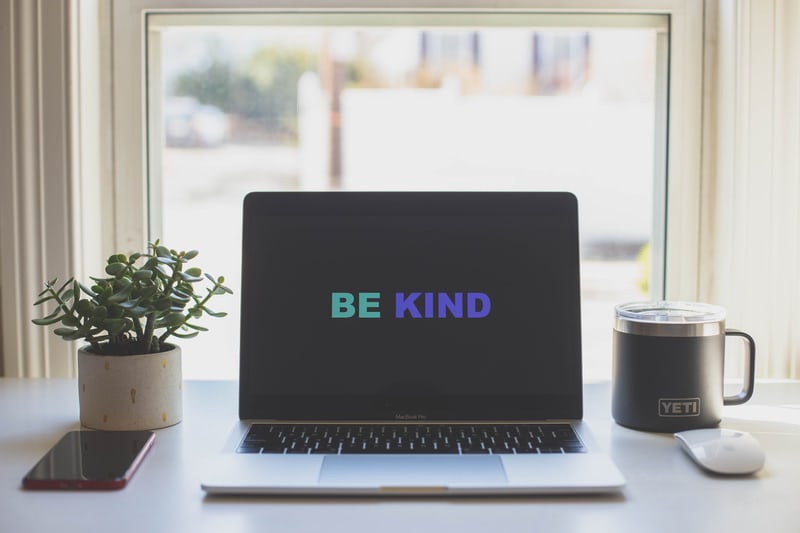Making a research ‘Plan B’ during a pandemic
21 July 2020By Katherine Parsons, Cardiff Business School
The current and ongoing COVID-19 pandemic has raised a multitude of challenges in all aspects of our lives and the way we function as a society, as well as how we conduct our research projects. I am one of many doctoral and postdoctoral researchers who have had to completely redesign or, at a minimum, tweak their research design in light of the challenges imposed by government public health restrictions during this period.
In this blog I want to share some of my experiences and the lessons I have learnt in creating a ‘Plan B’, and moving my research methods from offline to online during a pandemic.

Lesson #1 – contingency planning.
My original research design – an ethnographic study of socially orientated start-ups – would have involved prolonged periods of immersive data collection; sitting alongside entrepreneurs at work, observing their daily social interactions and dialogue, speaking with them informally and through face-to-face interviews and group discussions. All of which, at the time of publication, are not permissible within current government and University guidelines.
Even though the workplace in which the research participants worked was planning to reopen in September with social distancing measures in place I, as a researcher, would pose a risk as an external person coming into close contact with the participants and thus my current research design could not secure ethical approval. A plan B (or C, or D) was required!
Lesson #2 – tweak, not complete redesign.
Planning for ethical approval for a research design in a rapidly evolving and unprecedented public health crisis is not the easiest task. Thankfully the ESRC Wales Doctoral Training Partnership came to the rescue, advertising an online course – ‘Developing a Plan B’.
One of the tools presented in the course, the ‘Transformer©’ tool, encourages you to look at how certain aspects of your design can be tweaked in relation to adapting, expanding and innovating certain aspects of the project rather than totally rethinking the whole research design. I found this an immensely helpful way in which to view the task in-hand. In doing so, I identified a number of possible ways to overcome the challenges I faced in moving my offline ethnography online. I was also able to see a number of potential opportunities this move towards a virtual ethnography could provide which a) I had not considered before and b) potentially might have missed within my original research design and a traditional ethnography. Which leads me to lesson #3…
Lesson #3 – Be prepared to discover new things and alternative approaches.

The current pandemic places us in an evolving situation – affecting how we live, work, play and socially interact as a society. Such a seismic change challenges our inner being and prompts us to re-evaluate our values, morals and behaviours – questioning what is important to us and how we prioritise our time.
As a result, what you may have thought interesting before the pandemic might not be as relevant or as interesting now. Perhaps the global pandemic has opened your eyes to new problems, questions, tensions and paradoxes of intrigue worthy of exploring now, in light of the disease and global response towards it.
Academics and researchers are finding their place and contributions in a changing world. But we need not do this alone.
Lesson #4 – Reach out to the research community.
The fourth lesson I have learnt is to reach out to the community of fellow academics and researchers who are very likely either facing the same issues as yourself or have experience in alternative methods and approaches that may now be of interest to you.
Since lockdown I have increasingly been using social media channels such as Twitter and Linkedin to connect with other researchers and have found that – far from any pre-conceived ideas of academia being a cut-throat, competitive environment – people have been both generous and enthusiastic in their willingness to respond to my calls for help and guidance. There is a real sense of being ‘in this together’ and a recognition of not only our dependence on one another but also a genuine desire to want to connect and look out for one another that has been cultivated during these strangest of times.
Lesson #5 – Be kind to yourself, and to others.

Finally, the fifth lesson I have learnt in moving my research project online is to be kind to myself and others.
Undertaking research in a pandemic requires us to be even more alert to the cause of potential harm to our research participants and so if, like me, your Plan A has been placed in quarantine and alternatives sought, this does not mean that you will produce an inferior PhD project at the end. On the contrary, as I myself have found, it may be that your alternative methods and approaches yield a richer data analysis set and potential contributions than you could initially have hoped for.
It may be that your research project, by virtue of the current situation we find ourselves in, is able to speak to pertinent issues at the core of who we are and how we interact with one another. And even if this isn’t the case and you feel your project is ‘less than’ it might have been without the disruption, take heart in life lessons we have learnt along the way – the need to take stock, slow down and re-evaluate what’s important. The need to factor in all the ways we have grown both personally and professionally as well as unexpected skills and experience acquired along the way that you might not have gained otherwise. All of which might make you a more attractive candidate for the type of careers and roles that might exist post-pandemic.
Please do connect with me via social media:
Twitter: @pars_katherine
Linkedin: katherineparsons1
Research Gate: Katherine_Parsons2
- March 2024
- February 2024
- November 2023
- September 2023
- June 2023
- May 2023
- January 2023
- December 2022
- November 2022
- October 2022
- September 2022
- July 2022
- May 2022
- April 2022
- January 2022
- December 2021
- November 2021
- August 2021
- July 2021
- June 2021
- February 2021
- January 2021
- November 2020
- October 2020
- September 2020
- August 2020
- July 2020
- June 2020
- April 2020
- March 2020
- February 2020
- January 2020
- December 2019
- November 2019
- October 2019
- September 2019
- August 2019
- July 2019
- June 2019
- May 2019
- April 2019
- March 2019
- February 2019
- January 2019
- December 2018
- November 2018
- October 2018
- September 2018
- August 2018
- July 2018
- June 2018
- May 2018
- April 2018
- March 2018
- February 2018
- Biosciences
- Careers
- Conferences
- Development
- Doctoral Academy Champions
- Doctoral Academy team
- Events
- Facilities
- Funding
- Humanities
- Internships
- Introduction
- Mental Health
- PGR Journeys
- Politics
- Public Engagement
- Research
- Sciences
- Social Sciences
- Staff
- STEM
- Success Stories
- Top tips
- Training
- Uncategorized
- Wellbeing
- Working from home